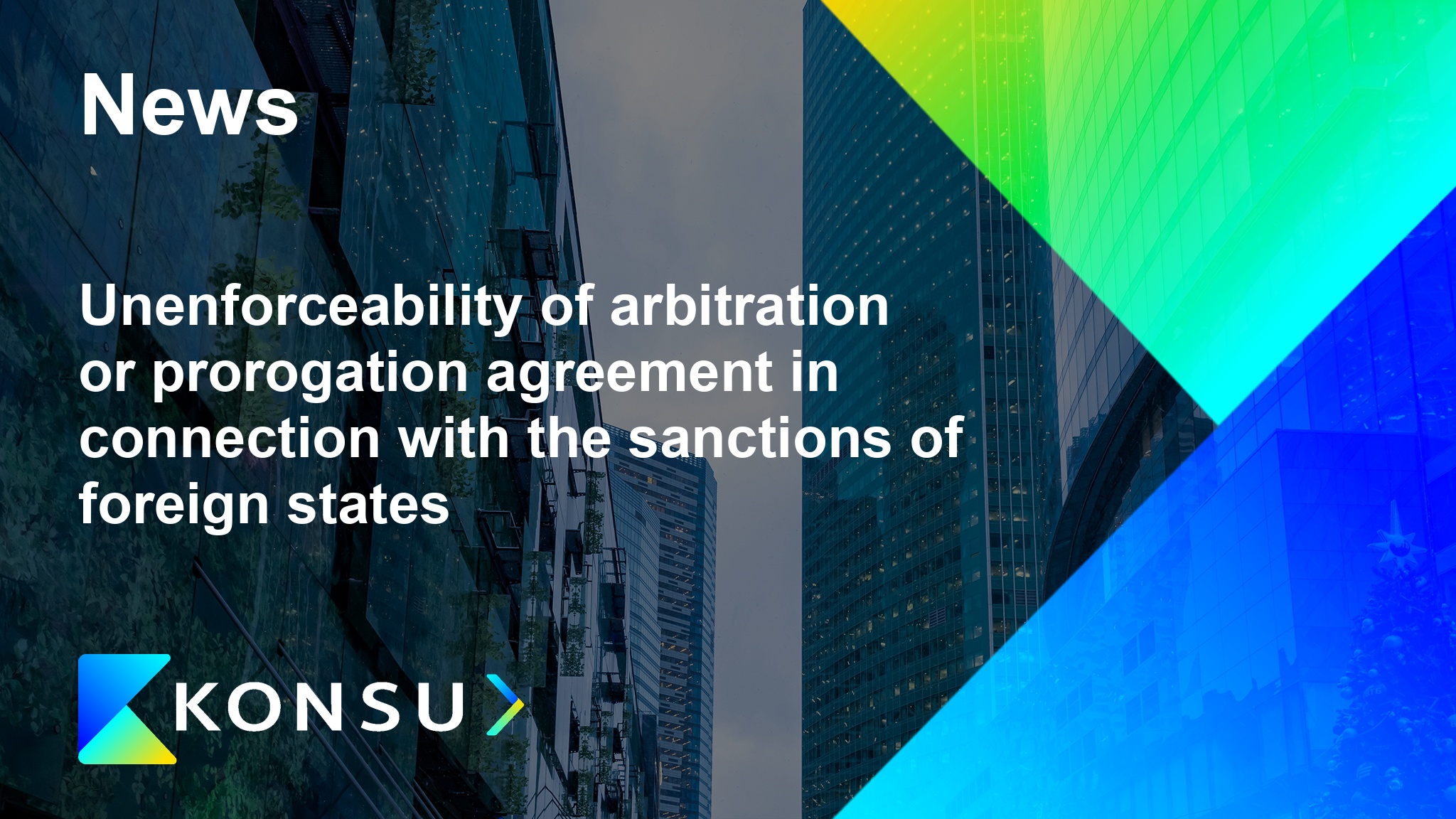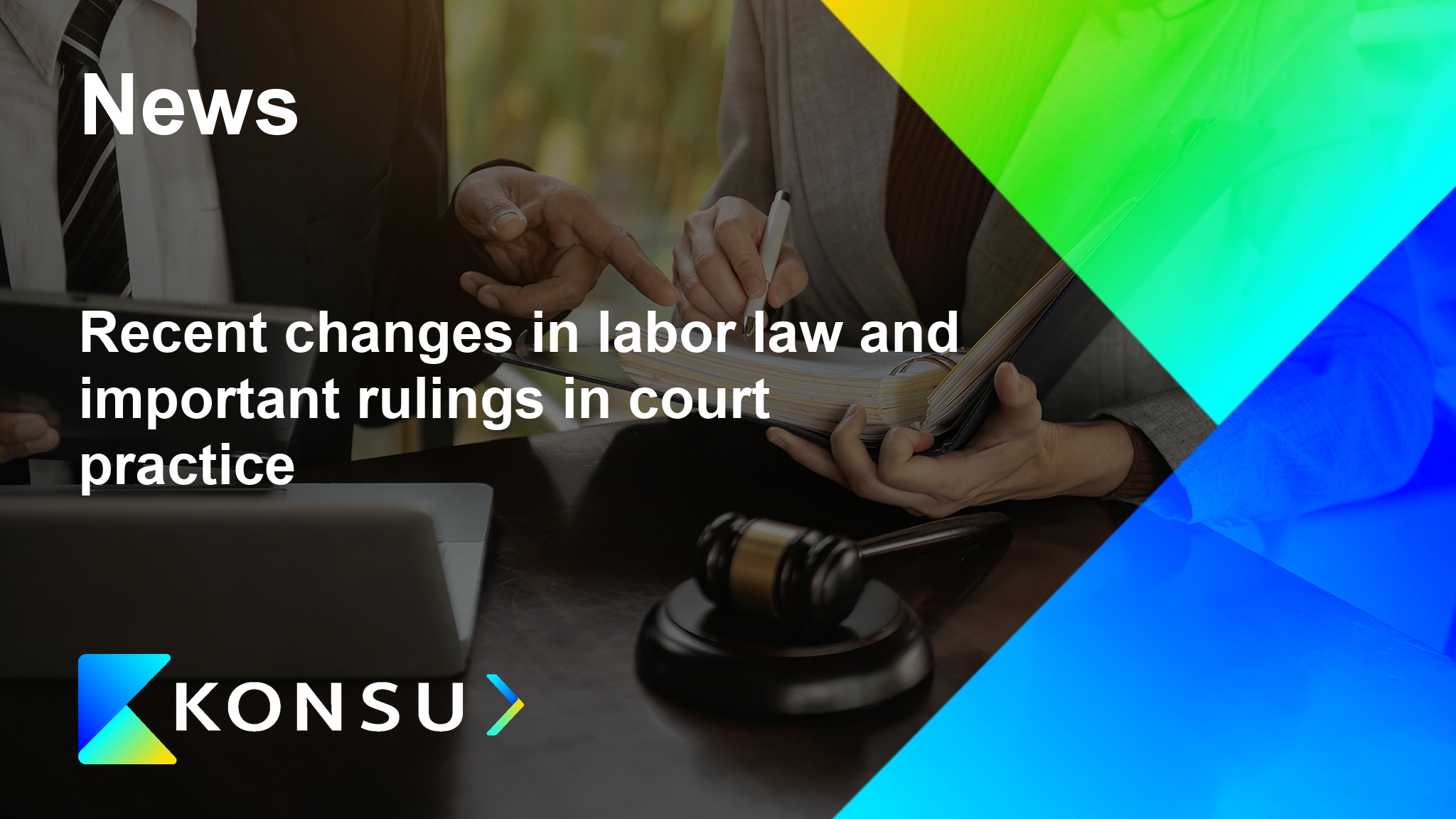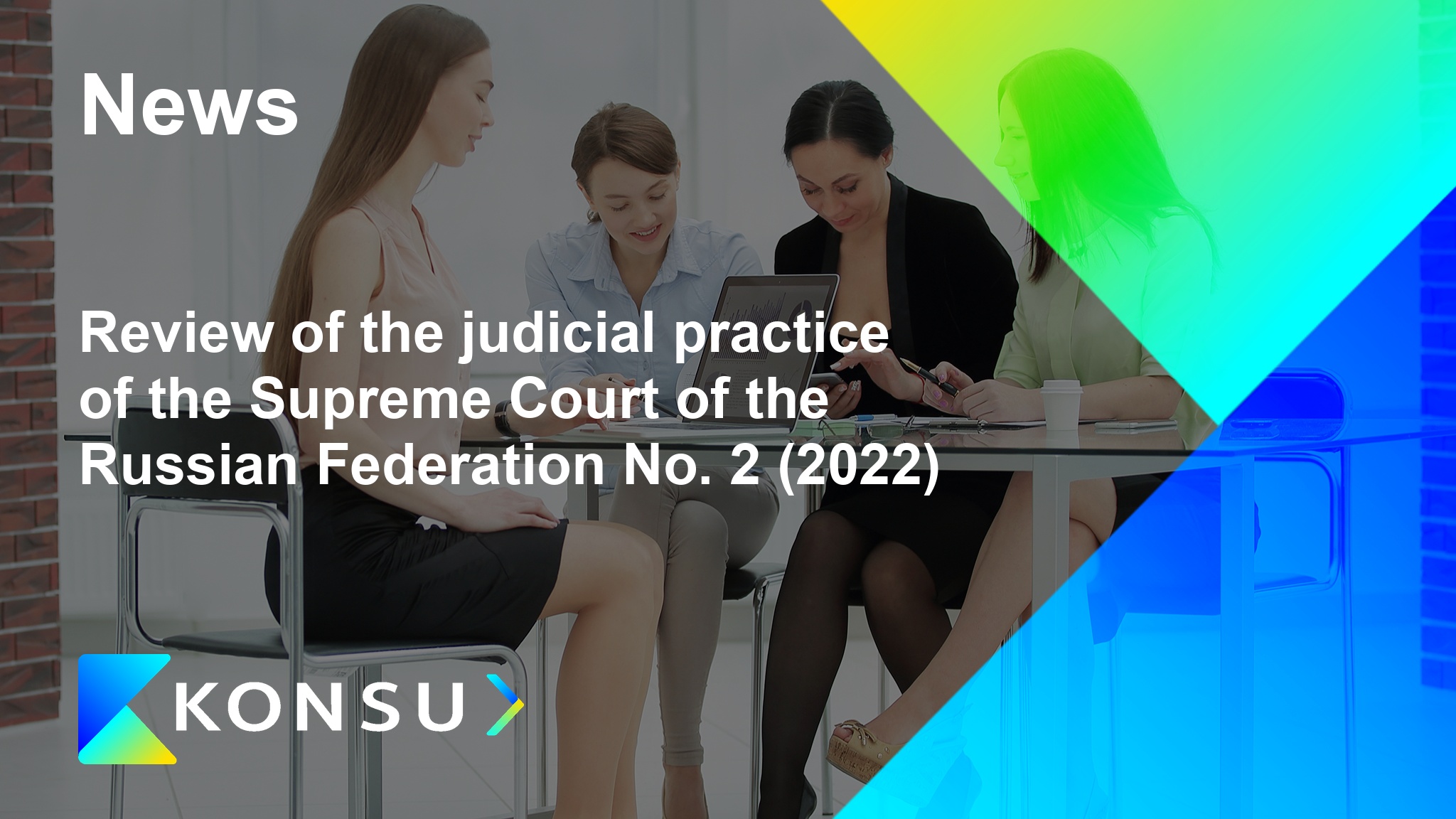Collection of accounts receivable in court proceedings
Any commercial organization or individual entrepreneur carrying out business activities under contracts that do not provide for 100% prepayment, face a situation sooner or later where the counterparty has receivables, payment of which is not always possible to achieve on a voluntary basis.Read more
Lawsuits from LLCs against shareholders to contest major transactions have to be submitted to arbitration courts
The claimant company applied to the arbitration court with a demand to invalidate the loan agreement (major transaction) between it and its individual member and to apply the consequences of the transaction invalidity. The court of first instance referred the case to the court of general jurisdiction. The court of appeal agreed with this position and upheld the decision of the court of first instance.Read more
Unenforceability of arbitration or prorogation agreement in connection with the sanctions of foreign states
The parties to a foreign economic contract, when structuring contractual relations, quite often include a condition in the contract to refer disputes to a foreign court (prorogation agreement) or international commercial arbitration (arbitration agreement) located outside the territory of the Russian Federation, or enter into a separate agreement regarding this issue.
However, the economic sanctions imposed by the European Union, the United States and a number of other countries against the Russian Federation, Russian legal entities and individuals have a significant impact on their ability to comply with an agreement on referring disputes to the jurisdiction of a foreign court or international commercial arbitration.
Recent changes in labor law and important rulings in court practice
- The dismissal of an employee for failure to achieve labour indicators is illegal, unless the employer proves the employee’s fault and the fact that, within the framework of labour relations, the employee is obliged to achieve specific indicators, as well as the fact that the employer has created all the necessary working conditions to achieve the necessary indicators. Ruling of the 1st Cassation Court of General Jurisdiction dated November 01, 2022 No. 88-28704/2022.
- Dismissal for absenteeism is illegal, unless the employee was requested an explanation for each day of absenteeism. As follows from Ruling of the 5th Cassation Court of General Jurisdiction dated November 15, 2022 No. 88-8733/2022, if in the dismissal order for absenteeism the employer refers to several episodes of absenteeism (absence from the workplace for more than 4 hours in a row), explanations are to be requested from the employee with regard to each of them.
- As follows from Ruling of the 7th Cassation Court of General Jurisdiction dated November 15, 2022 No. 88-17397/2022, the employer may recover only the actual costs of training from the employee, the collection of interest, indexation and penalties in such cases is illegal, as it worsens the position of the employee as compared with the rules of the labour law.
- In 2023, the minimum wage will be RUB 16,242, which is RUB 963 higher than in 2022.
- According to Draft Federal Law No. 270457-8, it is planned to allow confirming the passage of labour protection briefings by an employee through electronic document management, if the employer has implemented such a system. Confirmation can be arranged through the enhanced qualified electronic signature. Conducting targeted briefing on labour protection is planned to be confirmed as previously.
- As follows from Ruling of the 4th Cassation Court of General Jurisdiction dated October 18, 2022 No. 88-23846/2022, the dismissal of a pregnant employee based on testing results is illegal. The court recalled that it is impossible to establish a probation period for pregnant employees, and if it was established in the contract, these provisions shall not apply. The employer will have to return the employee dismissed for this reason to her position, even if it was unaware of the pregnancy at the time of dismissal.
Review of the judicial practice of the Supreme Court of the Russian Federation No. 2 (2022)
On October 12, 2022, the "Review of Judicial Practice of the Supreme Court of the Russian Federation No. 2 (2022)" was published, approved by the Presidium of the Supreme Court of the Russian Federation on October 12, 2022 (hereinafter referred to as the "Review").
Read more
Expansion of the prosecutor's powers in the arbitration process
From October 18, 2022, amendments to the Commercial Procedural Code of the Russian Federation will come into force, according to which the powers of the prosecutor in the arbitration process will be expanded. [1] Read more
Challenging the decisions of state bodies in the arbitration process
For the purpose of uniform application by the courts of the provisions in Chapter 24 of the Commercial Procedural Code of the Russian Federation, Decree No. 21 of the Plenum of the Supreme Court of the Russian Federation dated June 28, 2022 (PDF) clarifies the rules according to which courts consider cases of contesting decisions, including non-regulatory legal acts, actions (inaction) of state bodies, local governments, officials, state or municipal employees, other bodies and public officials.Read more
Provisions on agreements for out-of-court dispute settlement
Complying with a mandatory pre-trial dispute settlement procedure is a condition for anyone to exercise their right to go to court (Article 135(1(1)) Russian Code of Civil Procedure, Article 129(1(5)) Russian Code of Commercial Procedure). In cases provided by law or agreements, it is mandatory for the parties to an agreement to provide for a pre-trial dispute settlement procedure (Article 4(5) Russian Code of Commercial Procedure and other regulations) или договором.Read more
Challenging several debtor transactions in bankruptcy cases and treat them as a single related transaction
The Russian Ministry of Economic Development has put forward a bill amending Federal Law No. 127-FZ dated October 26, 2002 On Insolvency (Bankruptcy) (further the “the Bankruptcy Law”) by adding Article 61.3-1 expressly specifying that it would be possible to challenge several transactions (a set of consecutive fictitious or sham transactions) completed to withdraw debtors’ assets in bankruptcy cases (Bill published on regulation.gov.ru).Read more
Electronic documents in legal proceedings and remote participation in court hearings
On January 1, 2022, Federal Law No. 440-FZ introduced amendments to the Russian Code of Commercial Procedure, the Russian Code of Civil Procedure, and the Russian Code of Administrative Procedure, as well as other Russian regulations.
The procedure for use of electronic documents in legal proceedings has changed, and it is now possible to participate in court hearings remotely, using personal means of communication.









